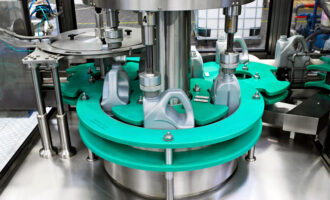
STLE’s 75th-year celebration postponed for New Orleans in 2021
The Society of Tribologists and Lubrication Engineers (STLE) was born at the height of wartime. Originally dubbed the American Society of Lubrication Engineers (ASLE), the organisation was chartered on 3 March 1944. The society’s bylaws were reportedly drafted the same night bombings were launched on Berlin, Germany.
ASLE was the brainchild of lubricant executive Walter D. Hodson, as he sought a forum for individuals and customers to gather and discuss lubrication. The organisation grew quickly, and today it supports more than 13,000 individuals and 250 companies in the tribology and lubrication engineering business sector, including 3,500 members scattered around the world. A formal name change was completed in 1987 to recognise the global nature of the organisation and to incorporate the term tribology.
As STLE recognises its 75th anniversary, it feels a little like we are back in war times. Only this time the enemy causing massive global upheaval is a deadly virus. Vicky Villena-Denton, CEO and editor-in-chief of F&L Asia Ltd, spoke to the President of STLE, Paul Hetherington, about STLE’s plans for the future on F+L Webcast, including how the organisation intends to celebrate its diamond anniversary. F+L Webcast is a monthly podcast that provides in-depth fuel and lubricant commentary on a wide variety of themes. You can listen to the full podcast with Hetherington at flweek.fuelsandlubes.com/fl-webcast.
Hetherington has been a member of STLE’s Board of Directors since 2007. He has served on the executive committee since 2017 with one-year terms as treasurer, secretary, and vice president, and possesses considerable lubricant knowledge gathered over 39 years’ experience in the industry.
In 2011, Hetherington joined Petro-Canada Lubricants where he is currently manager of the technical services group. Petro-Canada Lubricants is one of the largest suppliers of lubricants in Canada with a global customer base. Previously, he held roles as manager of training and consulting services for Fluid Life, and before this spent 20 years as a corporate lubrication and fuel specialist at Syncrude Canada Ltd., a major oil sands operation in northern Alberta.
STLE’s inaugural annual meeting was held in Chicago, Illinois, U.S.A., in 1946, attracting 379 attendees. In 2018, the board appointed a team of volunteers to plan a major commemoration of the 75th annual meeting. Celebrations were due to be held on 3-7 May 2020 in Chicago — where it all began. Unfortunately, ongoing risks relating to Covid-19 have poured cold water on this year’s celebrations. However, Hetherington emphasised the importance of recognising key organisational milestones. Celebrations will now be held at the 2021 STLE Annual Meeting in New Orleans, he says.
STLE has a proud history of supporting its technical experts with advancing their knowledge and the application of lubrication science. Many of the core programs the society offers were established more than 70 years ago, including awards, educational initiatives, membership, governance, technical and administrative committees, and publications. The objectives of the organisation remain remarkably similar today, says Hetherington.
Certification programs were added to STLE’s suite of services in the early 1990s and play an integral role in recognising an individual’s knowledge and credentials. STLE certifications are notoriously difficult. Those that achieve them “know what they are talking about” when it comes to lubricants, says Hetherington. Qualifications include the Certified Lubricant Specialist (CLS), Oil Monitoring Analyst Certifications (OMA 1 and 2) and a metalworking fluid specialist accreditation. The organisation is continually reviewing additional certifications that might be appropriate for STLE members, says Hetherington.
As the lubricant industry undergoes rapid change, STLE is evolving to meet the requirements of its members, says Hetherington. Working with other technical societies is a key component in future proofing the organisation. STLE recently signed a memorandum of understanding with the Asian Lubricant Manufacturers Union (ALMU), the lubricants industry group based in Singapore, to encourage cooperation and to explore opportunities to promote education and certification between the two organisations, says Hetherington.
Covid-19 has had a devastating impact on the global economy. But what does it mean for lubricant businesses? STLE surveyed the impact of Covid-19 in April 2020 to understand its impact on members and to advocate recovery plans. Half of the survey participants indicated Covid-19 was having a “significant effect,” while 14% suggested “things are pretty bad.” Supply chain issues were prevalent, a third of participants suggesting the pandemic was significantly impacting their ability to obtain raw materials. Many are suffering a prolonged decrease in demand for products and services. Participants expressed interest in receiving additional support from STLE in the form of online training and learning, market trends, timely industry news and job postings.
STLE’s recently released third Emerging Trends report provides deeper insight into several different discipline areas – including transportation, energy, manufacturing, medical and health. It is a “very broad report in terms of looking at emerging issues,” says Hetherington. “Lots of things are changing in the industry that are changing our focus,” he adds. The report enables the board and committees to understand the direction the world is heading and how STLE can address those requirements.
Digitalisation is a key focus area. Increasingly, we are trying to engage our members through digital medium, says Hetherington. STLE is working to deliver more training online and to reduce the reliance on physical conference and section meetings. New education courses are under development which Hetherington hopes to release “early this fall,” some of which will be available online. The organisation is also analysing opportunities to shift some certification programs online.
Another very visible trend in our industry is the shift to electrification. This creates considerable uncertainty for STLE members. Will electric vehicles reduce the importance of tribology moving forward? While there will be a significant change, Hetherington is confident that new challenges and opportunities will emerge with electric vehicles. Engine temperatures still need to be cooled, there are still bearing loads on the wheels, he says. STLE will provide education and certification programs to help meet those new challenges.
Despite the speed and scale of change, Hetherington continues to advocate for tribology as a career path. It is still a great time to enter the industry, he says. STLE will maintain its efforts to attract younger people to the sector, including supporting students in university with student chapters and encouraging industry representatives to advance their studies in tribology.
“Follow your passion and run with that passion as far as you can,” says Hetherington.







